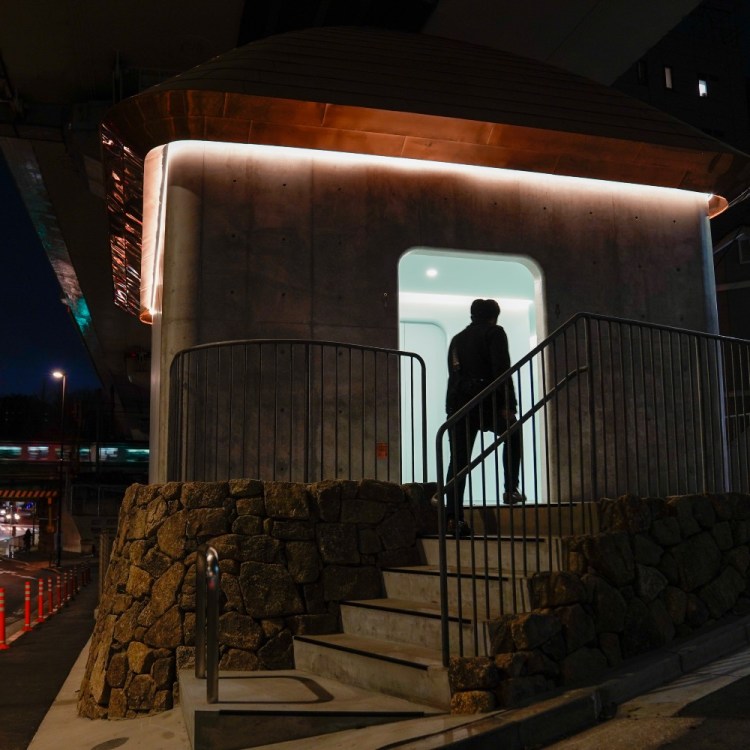As a frequent traveler I get asked a lot of valid travel questions…what snacks do you bring? Granola bars or anything that is pre-packaged and sealed, so you don’t end up getting fined $500 by border control for accidentally bringing an apple into a country. How do you do laundry on the road? Whatever means possible…sometimes washing underwear in the sink with bar soap. Always carry bar soap. It’s the Swiss army knife of cleansers helping with everything from personal hygiene and laundry to self-defense when used as a projectile thrown at vicious dogs. I speak from experience on all counts.
However, the most important question I get asked is how does one protect themselves from identity theft while on the road.
This is a big deal.
Identity theft is an exponentially growing problem worldwide, especially for travelers. We are the demographic that is often the most exposed. We use unsecured WiFi connections, carry a plethora of personal documents on our travels, withdraw money from questionable ATMs and purchase goods from people who we will probably never see again to hold accountable.
According to 2018 Identity Fraud: Fraud Enters a New Era of Complexity from Javelin Strategy & Research, in 2017 there were 16.7 million victims of identity fraud. This was a record high as was the year before. The loss amount was $16.8 billion. Nearly 60 million Americans have been affected by identity theft according to a 2018 online survey by The Harris Poll. Not only are the statistics staggering but I, unfortunately, understand the nature of this problem from first-hand experience. An experience that cost thousands of dollars, countless sleepless, stress-filled nights and nearly a year to rectify.
The point is, identity theft is a real problem and when we travel we are more vulnerable than ever. To help protect my fellow travelers, I’ve compiled a list of handy dandy do’s and don’t that will help keep you safe on the road.
BEFORE YOU GO:
1. Photocopy both sides of your documents so you have the account numbers and phone numbers handy. Keep these copies in a separate location from the originals or with your travel partner. In case of loss or theft you have all the necessary information to call and cancel your cards, get new copies of passports and drivers license, etc. Make sure you carry these copies in a safe place as they contain as much personal information as the originals! This served me quite well when I got stuck in Spain with a lost passport. The visit to the US embassy was exponentially expedited by the fact that I was 1. Ugly crying and 2. Had all my documents in order. Come to think of it, the ugly crying might have worked against me but the photocopies were a real asset.
2. Bring only what’s necessary. Don’t carry your Social Security card in your wallet — ever. Before you go, empty out your wallet, purse or fanny pack if you fancy of all your personal documents that you won’t need on the road. Leave your checkbook at home. You will almost never need it. If you are of the female persuasion, like me, you most likely carry a purse with documents dating back to the year 2000. One could almost consider it an archeological dig site. It’s a good idea to clean out all those receipts, paycheck stubs, cancelled credit cards, personal mail and all else on a regular basis because identity theft doesn’t just happen on the road.
3. Stop mail delivery to your home. No need to have mail pile up in your mailbox while you’re away. Your mail contains sensitive personal information that could be used to steal your identity. Other options are to have a friend pick up the mail for you or investing in a secure mailbox…which is a good idea even if you’re not traveling. If you’re like me, a grown adult whose parents lovingly cater to your every need, you can probably coerce these lovely humans into driving an hour to water your plants, pick up your mail and do your laundry while you’re gone.
4. Take care of your bills before you travel. Don’t bring any unnecessary documents with you on the road. Any bill left in a hotel room or thrown carelessly into the trash has personal information on it that can be used to steal your identity. On the road or at home, investing in a good shredder is a great idea. When short a shredder, I’ve thrown my bills away in bags of dog poop. Not a sanctioned method I’d say, but sometimes you have to improvise.
5. Use smart identification for daily purposes. Lock up your passport in the hotel safe and carry a drivers license or, better yet, invest in an international ID. Stolen passports will be a massive problem for you on the road and require the aid of the local embassy which can be very time consuming. Furthermore, stolen passports are big business. They can be sold on the black market and used for a variety of unsavory and illegal operations like opening fake bank accounts or participating in human trafficking. We had two unfortunate situations with local authorities while filming on the road. Once in the Philippines and once in Mexico. In both cases I only had my passport photocopy which saved me from having my passport held as a ransom for a bribe. Sadly, in many countries where corruption is rampant, I also keep a $20 bill handy and hide the rest of my cash elsewhere so when a situation like the above arises your “bribe” payout isn’t the full contents of your wallet.
6. Consider placing a temporary credit freeze on your cards. The benefit is that it blocks access to your credit history and prevents anyone from opening accounts in your name. However it still allows you to use your credit card. Win-win.
7. Be careful what you post on social media. This is as much of a safety issue as it is an identity theft issue. No need to give people a play by play of where you are or where you’re going. If you want to check in somewhere, maybe consider doing it after you’ve left. Be careful of what you show in your photos. Posting a cute photo of your passport or even your boarding pass might give identity thieves just enough to go on to access additional information. It also reminds the unethical types that you are out of town and your home is sitting there unoccupied. Have someone visit your home while you are gone to check in. I know this is a tall order in today’s social-media-obsessed world and I am 100% guilty of it as well. I did however learn a valuable lesson when a stranger showed up to a restaurant I had just posted from to say “hello.” Harmless if a little creepy but the message was loud and clear…be careful what information you are putting out because strangers are watching…some less harmless than others.
8. Invest in proper travel gear. Don’t wear purses with open pockets or backpacks with easily accessible zippers. Purchase a body wallet for carrying cards and cash. I don’t like to check bags and I generally travel with just a backpack. I am so aware of the likelihood of my outside pockets being visited by pickpockets’ fingers that I’ve amused myself by filling them with fake cash with handwritten notes to the offending party.
9. Call your credit card company and bank in advance and let them know where you will be. So if you are only traveling to Paris and suddenly there are charges from Barcelona or Tokyo on your account, it will be flagged ASAP. Most travel oriented credit cards are quite good about recognizing bogus charges…like my Capital One Visa that called to ask if I was purchasing baby items at a Wal-Mart in Philly while I was obviously in Paris. I thought it was cute that even my credit card company knows I don’t like children.
10. Consider an identity protection program. There are countless options out there and a little online research will tell you which one is right for you.
ON THE ROAD:
1. If you are using free Wi-Fi on your computer or phone make sure your connections are secure. If you are logging in on open, non-secure networks try to use HTTPS:// instead of HTTP://. The S stands for “secure” meaning that the data is encrypted for additional protection. The information is scrambled as it is sent so that no one in between can transcribe it. Most websites are automatically switching to HTTPS:// for greater protection but if not you should enter it in yourself. Avoid logging into your bank account, work email or any other sensitive accounts while on the road.
2. Be aware of your surroundings when withdrawing money from ATMs or entering pin numbers at gas stations and such. Make sure there is no one observing. Simple precaution that is often overlooked. Most places we travel to require common sense…that’s really it.
3. Withdraw money at legitimate bank ATMs only. A recent play by identity thieves is to install card readers in an ATM allowing them access to your card number and PIN. To be fair this happen to me at the gas station down the street from my house. Truthfully, this scam is about as preventable as food poisoning because it could happen anywhere anytime but, just like with food, you can reduce your chances by seeking out more reputable establishments.
4. Be wary of calls where you are asked for your personal information over the phone from anyone…even if they claim to know you. How many of those fake IRS calls have we all received? Exactly. If someone calls from your hotel, car rental company, bank, credit card company etc politely hang up and return the call on the verified number you have for the business. A recently popular scam is for identity thieves to note the hotel you are staying in and call your phone as the front desk who needs personal information that wasn’t filled out at check-in. Smart little buggers. Be smarter.
5. Cell phones are as vulnerable as computers. Make sure that yours is password encoded when you travel. Remove all apps that might facilitate a security breach like bank accounts, social media etc. You can reinstall those when you get home. Log out of any other apps that you want to keep. Be wary of suspicious texts and emails. My phone has roughly 3000 photos of my dog, sunsets and underwater footage from dives so really only David Attenborough or Ricky Gervais should ever steal my phone. Everyone else would be bored to tears.
6. Use your better judgement. If a situation feels strange, trust your gut and get out of there. Theft scams are endless and I could write a novel on them. The one that just recently happen to a friend is the coin drop scam. Someone “drops” coins at your feet while you sit on a train or in any busy location. They motion for you to help them gather the coins. As you are distracted, another individual helps themselves to any unattended belonging. Places of high traffic and rushing bodies are goldmines for thieves. I watched a train boarding platform in Poland as children were used by thieves and sent into the crown of passengers running to board the train. The children would gently glide through the crowd picking off any wallets sticking out of back pockets as their owners ran to jump on board. Be vigilant!
7. Men don’t put your wallet in your back pockets unless you want to make a pickpocket’s job that much easier. Ladies, don’t set your phone or purse down on the table…keep it in your lap instead.
AFTER THE TRIP:
1. Check credit card statements after your trip for any odd charges.
2. Change your passwords regularly and do not use the same password for everything. I learned this lesson the hard way. My Facebook account was linked to my bank and all the passwords were the same. When my facebook was hacked, I had to freeze all my accounts. Learn from my mistake and make sure you diversify those passwords and change them up every six months or so.
Safe travels and have fun!
This article was featured in the InsideHook newsletter. Sign up now.
























